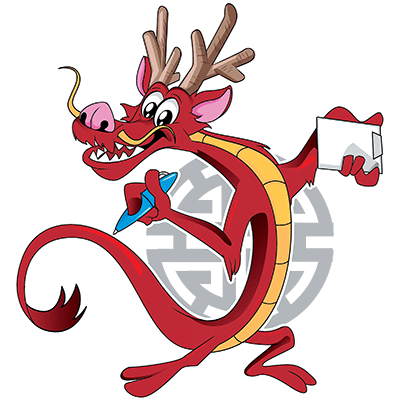Keyword definitions, game state checks, ability conditions and more updates are made to the comprehensive rules document. Just in time for Shimmering Skies!
The Comprehensive Rules document on the Disney Lorcana Resource page has received an update on August 9. Here is the update summary!

Keyword Abilities
Added the following introductory language to section 10.1 and added technical definitions and standard reminder text for each keyword ability.
10.1. General
10.1.2. The following entries include the technical definitions of keyword abilities. For a more generalized description of keyword abilities see section 7.3, “Keywords.”
10.1.3. The standard reminder text for each keyword is included here for reference. Reminder text isn’t rules text. It’s only a memory aid and may vary without changing the meaning of keyword rules.
10.2. Bodyguard
10.2.1. The Bodyguard keyword represents two abilities.
10.2.2. The first of these is a static ability that functions while the character is being played and creates a replacement effect. This ability means “When you play this character, they may enter play exerted instead of ready.”
10.2.3. The second is a static ability that creates a challenging restriction. This ability means “If an opponent would choose one of your characters to challenge, they must choose this character or another character with Bodyguard if able.”
10.2.4. The standard reminder text for Bodyguard is “(This character may enter play exerted. An opposing character who challenges one of your characters must choose one with Bodyguard if able.)”
10.3. Challenger
10.3.1. The Challenger keyword represents a static ability that functions while a character is challenging. Challenger +N means “While this character is challenging, they gain +N {S}.” Because this is a +N ability, it stacks with other Challenger effects.
10.3.2. The standard reminder text for Challenger is “(While challenging, this character gets +N {S}.)”
10.3.3. A character with Challenger doesn’t gain +N {S} if they are being challenged.
10.4. Evasive
10.4.1. The Evasive keyword represents a static ability that creates a challenging restriction. Evasive means “This character can’t be challenged except by a character with Evasive.”
10.4.2. The standard reminder text for Evasive is “(Only characters with Evasive can challenge this character.)
10.5. Reckless
10.5.1. The Reckless keyword represents two static abilities.
10.5.2. The first ability means “This character can’t quest.”
10.5.3. The second ability means “You can’t declare the end of your turn if this character is ready and can challenge an opposing exerted character or location.”
10.5.4. The standard reminder text for Reckless is “(This character can’t quest and must challenge each turn if able.)”
10.5.5. A player can still exert a character with Reckless to use its abilities or sing songs.
10.6. Resist
10.6.1. The Resist keyword represents a static ability that creates a replacement effect. Resist +N means “If damage would be dealt to this character or location, the character or location is dealt that much damage minus N instead.” Because this is a +N ability, this stacks with other Resist effects.
10.6.2. The standard reminder text for a character with Resist is “(Damage dealt to this character is reduced by N.)” The standard reminder text for a location with Resist is “(Damage dealt to this location is reduced by N.)”
10.6.3. If damage dealt to this character or location is reduced to 0, no damage is considered to have been dealt.
10.7. Rush
10.7.1. The Rush keyword represents a static ability. Rush means “This character can challenge as though they were in play at the beginning of your turn.”
10.7.2. The standard reminder text for Rush is “(This character can challenge the turn they’re played.)”
10.8. Shift
10.8.1. The Shift keyword represents paying an alternate cost to play a character instead of paying the character’s ink cost. Shift means “If you have a character in play with the same name as this card, you may play this character by paying their Shift cost instead of their ink cost. If you do, put this card on top of another character you have in play with the same name.” This is called shifting.
10.8.2. The standard reminder text for Shift is “(You may [Pay Cost] to play this on top of one of your characters named [Character Name].)”
10.8.3. A shifted character takes on the state of the character it was placed on (e.g., it’s dry if the character it was placed on was dry, it’s exerted if the character it was placed on was exerted).
10.8.4. If an effect on a shifted character causes it to enter play exerted, it becomes exerted as it enters play.
10.8.5. A shifted character retains whatever damage was on the character it was placed on. It loses all text of the character it was placed on but keeps any effects that applied to that character when the shifted character enters play.
10.8.6. When a shifted character leaves play, all cards in its stack (i.e., the card it was played on and any other cards beneath that one) go to the same zone as the shifted character card does, and the cards are no longer considered to be in a stack.
10.9. Singer
10.9.1. The Singer keyword represents a static ability that allows a player to pay a lower alternate cost to sing a song. Singer N means “This character can {E} to pay the alternate cost of a song card as though they had cost N instead of their normal ink cost.”
10.9.2. The standard reminder text for Singer is “(This character counts as cost N to sing songs.)”
10.9.3. This character counts as cost N only to sing songs and only during the process of playing a card. The character’s ink cost doesn’t change.
10.10. Sing Together
10.10.1. The Sing Together keyword represents a static ability that allows a player to pay an alternate cost to sing a song with 1 or more of their characters. Sing Together N means “Instead of paying the ink cost of this card, you can {E} a number of your or your teammates’ characters with total ink cost N or greater to play this card without paying its ink cost.”
10.10.2. The standard reminder text for Sing Together is “(Any number of your or your teammates’ characters with total cost N or more may {E} to sing this song for free.)”
10.10.3. When playing a song using Sing Together, add the ink costs of one or more of your ready characters together. If the total meets or exceeds the cost listed for Sing Together, the character or characters can sing the song.
10.10.4. When a character sings a song with Sing Together, any triggered abilities on it that have the condition “Whenever this character sings a song” occur when the trigger condition is met.
10.11. Support
10.11.1. The Support keyword represents a triggered ability. Support means “Whenever this character quests, you may add this character’s {S} to another chosen character’s {S} this turn.”
10.11.2. The standard reminder text for Support is “(Whenever this character quests, you may add their {S} to another chosen character’s {S} this turn.)”
10.12. Ward
10.12.1. The Ward keyword represents a static ability. Ward means “Your opponents can’t choose this card when resolving an effect.” 10.12.2. The standard reminder text for Ward is “(Opponents can’t choose this character except to challenge.)”
10.12.3. Effects that don’t require the player to choose still affect this character.
Game State Check
Added the following language to sections 1.9.1 and 1.9.2 to clarify how a game state check functions:
1.9.1. There is a set of conditions the game checks for with certain required actions happening when one or more of those conditions is met. This is called a game state check and is made up of two parts: the game state condition and the required action. A game state condition is a specific circumstance the game state can achieve. A required action is what happens in the game when a game state condition is met. The following are the conditions that the game state check looks for and the required action each creates.
1.9.1.1. If a player has 20 or more lore, that player wins the game.
1.9.1.2. If a player attempted to draw from a deck with no cards since the last game state check, that player loses the game.
1.9.1.3. If a character or location has damage equal to or greater than its Willpower {W}, that character or location is banished.
1.9.2. A game state check is made at the end of every step, after any action or ability is finished resolving, and after each effect in the bag is finished resolving. During a game state check, first check and complete all win and loss conditions and required actions. Then if there are no win or loss conditions met, check and complete all other conditions and required actions. Once all required actions are complete, the game
state check repeats until there are no further required actions to complete. Triggered abilities that occurred during this process are then added to the bag to resolve.
1.9.2.1. Any required actions generated from a game state check happen in turn order. If a player would win and lose the game at the same time as a result of the same game state check, that player wins the game.
Reveal
Added rules text and an example to clarify effects that cause a player to reveal a card or cards:
7.1.10. Some effects instruct the active player to reveal a card or cards. To reveal a card, the player shows the face of the card to all other players in the game. The player can reveal cards only from the group of cards described earlier in the effect.
Example: The song Look at This Family has an effect that reads, “Look at the top 5 cards of your deck. You may reveal up to 2 character cards and put them into your hand. Put the rest on the bottom of your deck in any order.” The cards the player chooses to reveal can only come from the top 5 cards the player looked at. The player can’t choose to reveal any cards from any other group of cards.
Replacement Effects
Added the following language to section 7.7.1 to clarify the timing of replacement effects:
7.7.1. Some effects are considered replacement effects. These effects wait for the stated condition to occur and then partially or completely replace the event as the effect resolves.
Triggered Abilities with Two Conditions
Added rules text and an example to address triggered abilities that have two conditions:
7.4.6. Some triggered abilities are written as, “[Trigger Condition] and [Trigger Condition], [Effect].” These abilities function as having two triggered abilities that are independent of each other but both resolve for the same effect.
Example: John Silver – Alien Pirate has an ability called Pick Your Fights that reads, “When you play this character and whenever he quests, chosen opposing character gains Reckless during their next turn.” The triggered ability occurs when John Silver is played and also when the active player quests with this character. The triggered ability doesn’t need both trigger conditions to be true at the same time for it to occur, only one or the other.
Floating Triggered Abilities
Added rules text and an example to better explain abilities or effects that create a triggered condition that last for a specific duration of time:
7.4.7. Some abilities and effects create a trigger condition that lasts a duration of time where they exist and can occur. These are usually created as the result of a resolving action. They are functional only for the stated duration. Once that duration has passed, the trigger condition ceases to exist. These are known as floating triggered abilities.
Example: Steal from the Rich is an action that reads, “Whenever one of your characters quests this turn, each opponent loses 1 lore.” When Steal from the Rich resolves, it creates the floating triggered ability defined by the card. This exists for the rest of the turn.
[A] to [B]
Added clarifying language to better simplify and explain this rules construction.
7.1.1. Each clause of a card is a separate effect and/or cost. Each clause is separated by a period.
7.1.2. Cards that list one or more costs or effects in a single clause resolve based on the intervening word.
7.1.2.1. Most cards are written as [A].
Example: “You may have up to 99 copies of Dalmatian Puppy – Tail Wagger in your deck.”
7.1.2.2. [A] to [B] – The player must pay the cost described in the first part of the clause [A]. If they’re unable to do that, they can’t finish resolving the effect in the second part of the clause [B]. The first part of the clause [A] is a cost, not an effect. The second part of the clause [B] is an effect.
Example: “Banish chosen item of yours to deal 5 damage to chosen character.” If the player doesn’t have an item in play that they can banish to pay the cost listed in the first part of the clause [A], they can’t deal the 5 damage described in the second part of the clause [B].
Also included:
- General updates
- Quality-of-Life updates
- Glossary updates



